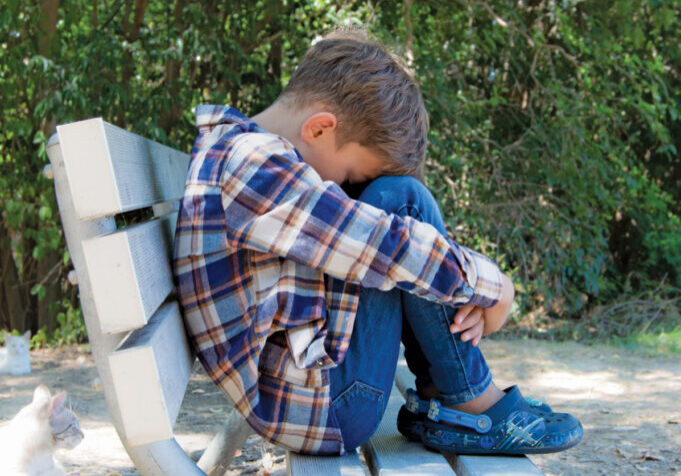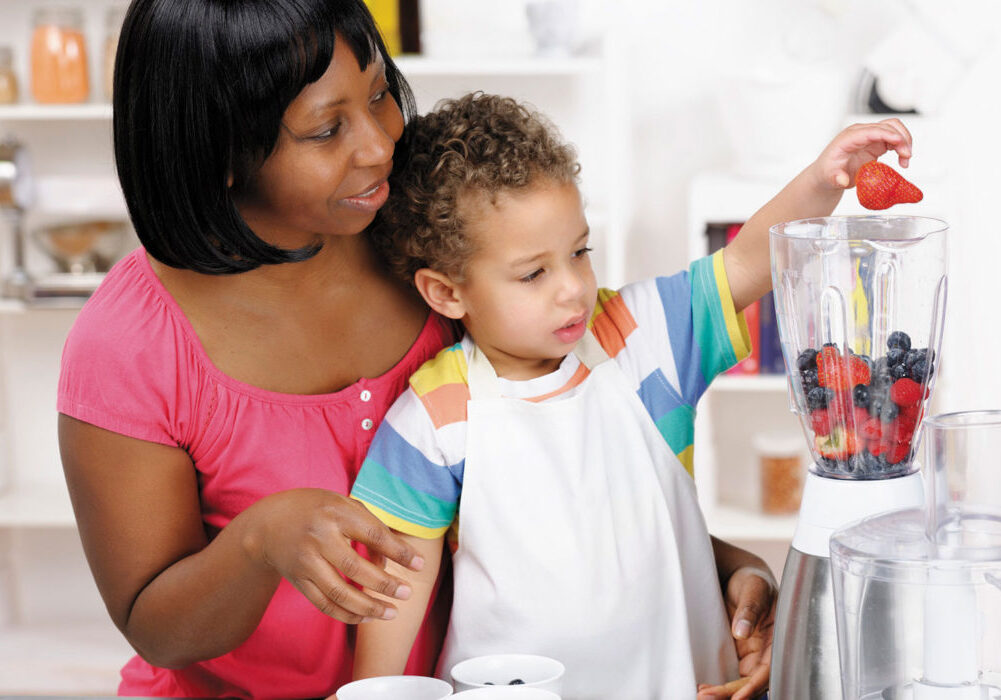Our children face a lot of stress, including homework, busy schedules, social pressures and just the normal challenges of growing up and finding their place in the world. One simple way to help them manage stress every day is paying attention to what they eat and drink.
Drink enough water every day
By simply drinking enough water throughout the day, children can minimize feelings of stress and anxiety. All of our organs, including our brain, need water to work properly. According to Calm Clinic, water has natural calming properties and staying well hydrated helps keep stress from building.
On the other hand, if we are dehydrated, our body is strained and we can become tense and edgy. Dehydration can even cause symptoms that feel like anxiety, such as dizziness, muscle fatigue, headache, increased heart rate and nausea. It has also been linked to higher cortisol levels, which trigger stress.
How much water is enough?
The amount of water a child needs depends on factors like their activity level and the local weather, but generally children should drink at least six to eight cups of water per day. Your children will probably need more water if they are participating in sports; it is suggested that they drink a half cup to two cups of water every 15 to 20 minutes while exercising. For specific recommendations, see the Dietary Reference Intakes (DRIs) developed by the Institute of Medicine (IOM). To help your children get in the habit of drinking water, carry your own water bottle with you on the go and drink lots of water at home. The more your children see you drinking water, the more likely they are to ask for it.
Keep water handy, fun and flavorful
Try boosting their water intake with these tricks:
Keep it handy. Bring reusable water bottles wherever you go. Pack water in their lunch box and an additional water bottle to have at their school desk to sip throughout the day.
Factor in fun. Buy cups and reusable water bottles with your child’s favorite characters on them or in their favorite color.
Add flavor. Add bits of watermelon, pineapple, cucumbers, lemons limes. For cooling drinks in hot weather, use frozen fruit in place of ice cubes or put berries in the ice cube trays and add the berry-cubes to their water bottles or cups.
Cut Out Caffeine
About 75 percent of children consume caffeine every day, according to the journal Pediatrics. Caffeine is an addictive stimulant with no nutritional value, and it’s the most popular and easily accessible drug in the world. It takes just 15 minutes to start feeling its effects on our central nervous system, and it takes about six hours for our bodies to eliminate just half of the caffeine.
Caffeine causes an increase in our heart rate and breathing rate — the same feelings we get during a stressful event when the fight or flight response kicks in. Consuming caffeine when already hyped up from stress only adds fuel to the fire, making it so much harder for the body to calm down and get back to a balanced state. The National Sleep Foundation recommends that children stay away from caffeine because it interferes with their ability to get a good night’s sleep.
To cut out caffeine and its stress-enhancing effects, don’t serve your children sodas, coffee, tea (herbal teas are generally fine), energy drinks and any drinks with caffeine. Stick with pure water and experiment with ways to make it their drink of choice. Also, watch out for and limit foods and drinks with chocolate, which also contains caffeine. Become a food label reader and you’ll be surprised at what you find.
Say Goodbye To Sugar
Doctors and health professionals clearly warn us that added sugar can lead to health problems like diabetes, heart disease, and obesity. Less well known is the fact that sugar can also trigger anxiety. With effects on the nervous system that are similar to those of caffeine, sugar can contribute to symptoms that mimic a panic attack. Our kids can experience blurry vision, fatigue, difficulty thinking and increased heart rate just from eating sugar!
These symptoms can cause those who already suffer from anxiety to be even more worried and fearful, which in turn, worsens their symptoms.
Sugar and its effects can sneak up on us, hiding in some very common foods, such as salad dressings, flavored yogurt, smoothies and so-called “health” bars.
Tips to avoid extra sugar
• Retire the cookie jars, candy dishes and gumball machines so sugary snacks aren’t so easy to indulge in.
• Don’t use treats to either reward or punish your kids.
• Instead of giving your kids candy for a special occasion, order or make your own delicious fruit creations like bouquets, skewers, or fun shapes and characters.
• Prepare in advance for sugar-intense holidays like Halloween and Valentine’s Day. Provide delicious fruit and sugar-free desserts so your kids don’t miss the sugary snack
• Model good eating habits and expand your food label reading so you clearly understand which foods have added sugars.
• If your family has a tradition of dessert after the main meal, start swapping out store-bought sugary foods for fresh fruit, and explore different spices to amp up the flavor. If you are a home baker, try cutting the sugar in recipes in half.
Making these changes may seem daunting at first, but there are so many resources and creative ideas available to make your transition go smoothly. In many cases, your children will probably not even realize the difference. By forming these important healthy habits early in their lives, your children will benefit in the long run by living a healthy, calm lifestyle.
Posted in: Health & Nutrition
Comment Policy: All viewpoints are welcome, but comments should remain relevant. Personal attacks, profanity, and aggressive behavior are not allowed. No spam, advertising, or promoting of products/services. Please, only use your real name and limit the amount of links submitted in your comment.
You Might Also Like...

Fruits and Veggies for Families Eating Their Best on a Budget
Eat fresh. Eat organic. Eat a variety of fruits and vegetables every day. Sage advice, but isn’t it expensive? The good news is there are many economical ways to make […]

Not Just for Taco Tuesday – Salsas Spice Up Any Day
As a staple on most tables for Taco Tuesdays, salsa is one of my favorite condiments. The blend of peppers, spices and tomatoes, with just the right amount of heat […]
My Mother Hid Her Cancer Diagnosis from Me – I Made a Different Choice with My Own Children
In the summer of 1998, I returned home after a yearlong college study abroad program. One day as my mother and I were catching up, the conversation took an odd […]

Four Things You Can Start Doing Today to Improve Your Child’s Mental Health
Kids with poor mental health struggle more than other kids with many life skills. They worry more, find it hard to make decisions, display problem behaviors, have more frequent and […]

The Campaign for Safe Cosmetics – Empowering Consumers to Make Healthy Choices
Last March celebrity tabloids were abuzz when toddler Vivienne Jolie-Pitt was spotted wearing lipstick in public. Observers were decidedly focused on the appropriateness of the 3-year-old’s “dress up” demeanor. Noticeably […]




